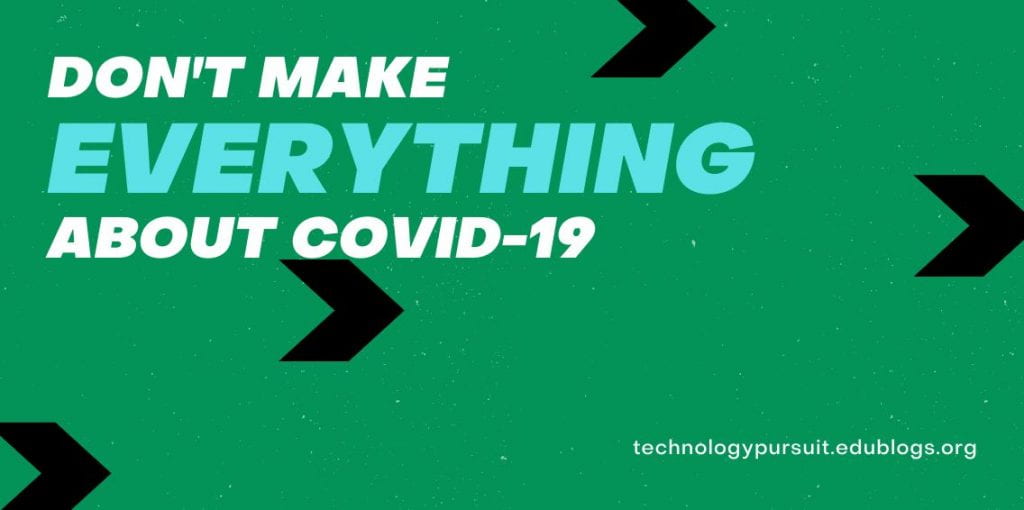One piece of advice we’ve been hearing about this crisis is not to get inundated by information. Take breaks from the media and social media.
But are we doing the same when planning lessons for our students?
Imagine a student opening up his packet to find several articles to read–and every single one is about Covid-19. This is what many parents have faced this week.
Before I go any further, everyone is doing their best. No one knows for sure what is right or wrong in this unprecedented crisis (or at least unprecedented in the past century).
That said, we need to be aware of how much we’re immersing students into this crisis, and how this inundation of information about this pandemic might be affecting their mental health.
I’ve been remembering back to the peak of the AIDS crisis. I was 8 or 9 years old and remember watching a 20/20 hosted by Barbara Walters (that’s how I remember it, at least) with my babysitter. Barbara posed so many questions. Should doctors be treating AIDS victims? Who was at danger of contracting it?
That night, I slept on the living room floor. I couldn’t bear to be alone in my upstairs bedroom.
I refused to tell my mom why I did this, no matter how much she asked. I didn’t want to seem ridiculous and childish, so I held that anxiety in.
When I reflect on this as a teacher and a parent, I don’t want children out there to be feeling the same.
This isn’t to say that we should never address the crisis in our current lessons. There are some classes–current events, sociology, economics–that should be addressing Covid-19 and its impact. And we should be addressing the facts about Covid and self-care at home. We can’t escape the reality around us.
But maybe we need to provide opportunities to escape reality, too, and think about life beyond the current crisis. We as teachers need to be cognizant about the lessons we’re giving students. While this is a time of teachable moments, not every lesson needs to be connected to Covid.
Instead, let’s make sure lessons that address the virus and its impact are balanced with lessons that don’t. Or let’s give kids an option to complete a Covid-related lesson or a non-Covid related lesson (because there may well be plenty of students out there who do want to learn more).
There isn’t much we can do to keep our students physically well, but there’s a lot of ways we can help them stay mentally healthy. Not barraging kids with lesson after Covid-related lesson is one of them.


